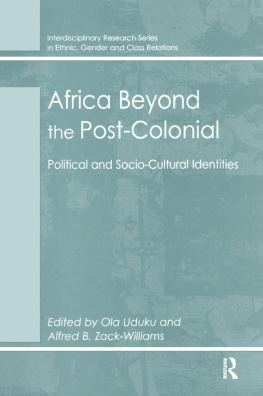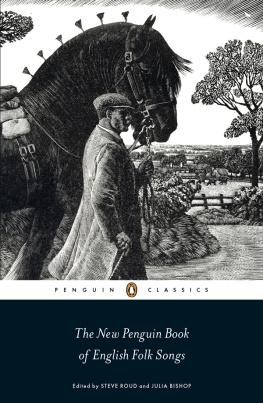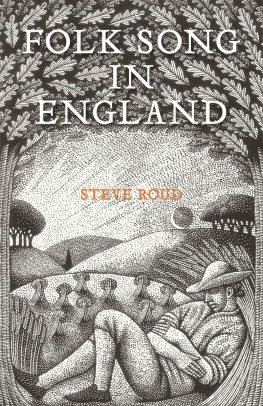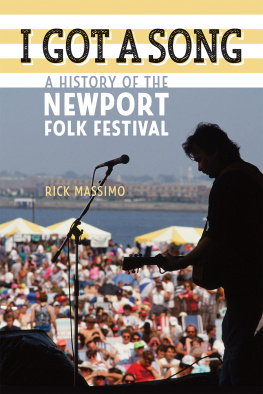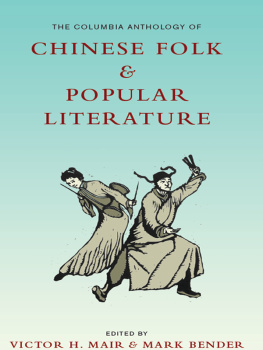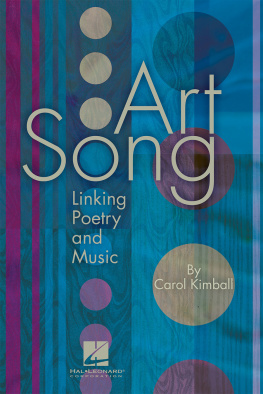STUDIES IN FOLK-SONG AND POPULAR POETRY
By
Alfred M. Williams.
This edition published by Read Books Ltd.
Copyright 2018 Read Books Ltd.
This book is copyright and may not be
reproduced or copied in any way without
the express permission of the publisher in writing
British Library Cataloguing-in-Publication Data
A catalogue record for this book is available
from the British Library
Contents
THE CONSTITUTION
AND THE GUERRIERE.
ENGLISH AND SCOTTISH
POPULAR BALLADS.
SIR SAMUEL FERGUSON
AND CELTIC POETRY.
SOME ANCIENT
PORTUGUESE BALLADS.
PREFACE
Mr. Williamss essays merit a few words of commendation from folk-lorists on this side of the Atlantic as being calculated to interest readers in a subject which is full of profound significance, but against which they may possibly be prejudiced in the degree that science claims it as material for analysis.
For within the last few years folk-lore has been promoted to the rank of a serious study and the Folk-Lore Society of London, aided by its numerous and lusty offshoots, both American and Continental, is busily applying the scientific method to fireside tale, custom, song, and ballad seeking what old philosophies lie at the heart of these, and what they have to tell about intercourse between peoples in the past.
Nevertheless, the folk-lorist treats his subject-matter as tenderly as Isaak Walton bade the angler hook his worm, for he remembers what poetry the song and saga hold, and that laughter and tears are ever young.
These essays range over a wide field, both of space and time. The earlier in arrangement deal with subjects which are purely literary and modern, and justify their presence only in the reasons advanced by the author. But the major number come within the ken of the folk-lorist, and appeal not to him only, but to all who are moved by the passion and sincerity of primitive poetry, in the skill and sympathy with which the varied note of folk-song in East and West is interpreted. In some of the examples, however, notably those from Roumania, Mr. Williams does not sufficiently allow for the modern dress in which the peasant verse is clothed.
EDWARD CLODD.
AMERICAN SEA SONGS.
Oh, fare ye well, my pretty, fair maids,
Im bound for the Rio Grande!
Ri-o-Rio I
Im bound for the Rio Grande!
No one who is old enough to remember the glorious spectacle of a full-rigged American clipper ship getting under full sail outside of the headlands of a harbor, after having been cast off by the tug, is likely to have forgotten the sight: the white sails dropping from the yards, being sheeted home, and swelling out to the fresh wind, until a cloud of canvas sparkled in the sun; the strong and graceful life which the ship took on under their power; the foam curling up under the bow with her forward rush; the great plain of the ocean, with all its free airs and salt scents, beckoning to life and adventure seaward round the world. To this, to one on board or near enough to hear, will be added the indefinable and mysterious charm of the sailors chants, as they haul in the bowline, and tauten up the tacks and sheets by a pull requiring unison of effort; and the cadence, at once long-drawn and vigorous, fills the air with a magic voice of the wind and the sea. It has the melopoeism, if it may be so called, of the cadence of nature, and takes its note from the solitude and melancholy of the world, never more impressive than upon the vast plain of the sea. It has been heard from immemorial time, since the first oarsmen pulled together along the coasts of the Indian Ocean, and possesses the same essence in whatever language it is uttered; and, while it has its practical purpose in securing unison and accentuation of effort, it would be a mistake to suppose it without origin in and appeal to the innate impulse for the expression of sentiment in melody in the heart of man. Every sea captain knows, or used to know, how much more quickly the anchor came up, or how much more hearty were the pulls on the bowlines, if there were a full-lunged and melodious leader for the shanty; and his practical minded mate would at times shout, when the chorus was going faintly and mechanically, Sing out there, cant ye? with the same purpose with which he would exhort the men to take a stronger pull. Conversely, a poor leader, or a second who could not or would not keep in proper time, was a decided injury to the effectiveness of the labor; and it sometimes happened that an energetic captain, when his ship was being got under way, would step up to a sailor, apparently heaving sturdily at the windlass, and knock him sprawling, for the reason that he had detected him giving the wrong time to the chant, out of mischief, or for the sake of testing the sharpness and intelligence of the old man.
The words of these windlass and bowline shanties have, of course, little of the element of finished poetry about them. They are not songs, but chants, whose purpose is to give accentuation and force to the exertion of united strength rather than to the expression of sentiment, and of which the rhythmical melody is the essential element. Whether they be new or old, they always have been essentially improvisations, capable of being stopped at any moment or added to indefinitely, and, like the refrains of the old ballads, are dependent upon the sound rather than the sense for their effect. Nevertheless, however imperfect and indefinite their expression, they took their tone and color originally from the elements in which they were born, and gave out not only the voice of the sea and the wind, the notes of the never silent olian harp of the cordage and the bellying sails, but the prevailing sentiment of the human heart upon the great deep, its underlying oppression, its longing for home, its craving for relief from monotony; and it is a dull ear that would not detect this, under the most absurd and uncouth words ever strung together in a sailors shanty.
As among the seamen of all races, the chants of the American sailors, before they were so reduced in quality and number by the combined influence of steam vessels and a protective tariff, were of ancient and indefinite origin, and were constantly being altered or added to by circumstance and improvisation. They came, of course, first from the English seamen, who were our sailors ancestors and associates, to whom at least the element descended from the songs to which the galleys of the sea kings of Scandinavia were impelled over the foaming brine, or the Celtic coracle was paddled on the lonely lake; and it is impossible, in a mass of rude verse, of little definite meaning, of a fluid and fluctuating form, and handed down from lip to lip without ever, except incidentally, having been put into print and preserved, to fix the origin or the date of creation of any of these songs. There are traces of old phrases and archaisms, ancient words strangely metamorphosed into a semblance of modern meaning, and all such settlings and deposits as are to be found in the geological strata of spoken language,references to mermaids, sea-serpents, and survival of myths regarding the powers of the sea and air; but they are of no such distinct historic value as are the indications to be found in the more definite folk-lore in prose or verse, which have the element of dramatic interest and narrative. It is to be remembered that these chants, as we have said, were essentially improvisations, with a purpose different from ordinary song,that is, to give the governing power of melody to united exertion,and that whatever color and substance they have are extraneous, and not inherent. What is distinctively American can be determined only by local allusions or by definite knowledge of their origin: the first are of very little value, for an English chant, with its local allusions, might be very readily altered into an American one by the substitution of American names; and in regard to the second, as has been said, the songs were born, and passed from mouth to mouth, and from ship to ship, without any ones knowing or caring where they originated. Nevertheless, the American sailors, when there were American sailors, had as strong a national and provincial feeling as those of any other country; were capable of making their own chants, if not as much given to improvisation as those of the Latin races; and had a selection of local names as sonorous and as readily adapted to the needs of a rhythmical chorus as those of any English-speaking people. The Rio Grande and the Shenandoah were as mouth-filling and sonorous as the High Barbarie or any of the refrains of the English shanties, and the American sailor sheeted home his canvas with Virginia Ashore, or Baltimore, or Down to Mobile Bay in his remembrance as well as on his lips.





